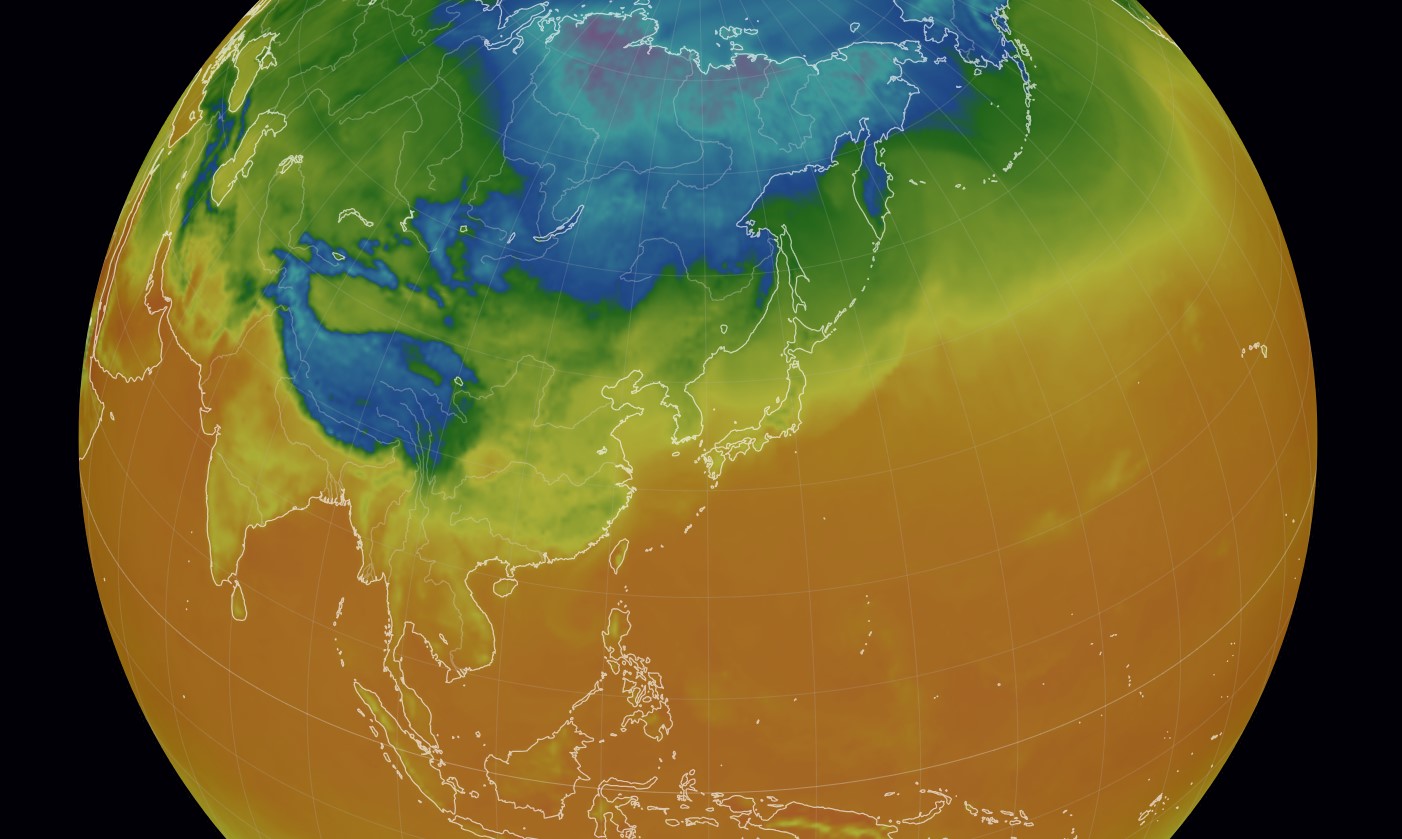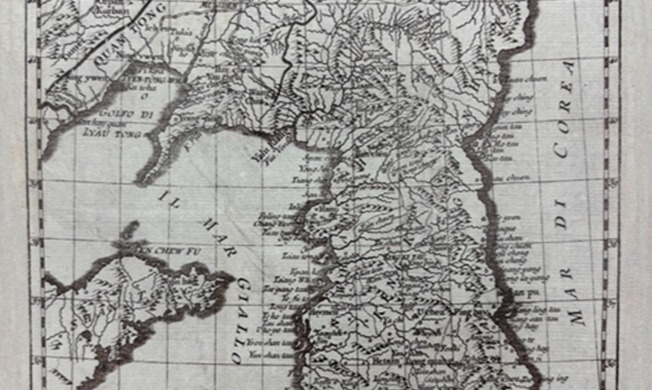
A law on monitoring and forecasting climate change took effect on Oct. 25, the Ministry of Oceans and Fisheries and the Korea Meteorological Administration said. Shown is the area around the Korean Peninsula on Earth Nullschool, a map of global weather conditions. (Screen capture from Earth Nullschool)
By Charles Audouin
A law on monitoring and forecasting climate change took effect on Oct. 25, the Ministry of Oceans and Fisheries and the Korea Meteorological Administration (KMA) said.
Under the new act, the KMA will develop a systematic method of devising a basic plan for monitoring and forecasting climate and climate change and an annual implementation plan.
Preparation of guidelines for setting the basic plan will allow related government ministries to devise monitoring and prediction strategies to be submitted for screening and confirmation after deliberation by the Presidential Commission on Carbon Neutrality and Green Growth.
The ministry will observe climate change, the environment and ecosystem of the oceans, and polar regions to compile monitoring data on climate factors such as sea temperature, salinity, ocean currents, sea ice, sea level, and interactions of climate factors within the climate system. It will also analyze abnormal and extreme climates in the seas and polar regions including glacier loss.
Based on such monitoring information, the KMA will gather climate forecast data on climate factors such as temperature, rainfall, sea surface temperature, solar radiation, wind and wave height as well as weather phenomena such as El Nino and La Nina.
The ministry and the KMA will also form a data system for joint monitoring and forecasting of data on climate and climate change. They will set standards and procedures for designating organizations specifically to monitor and predict climate change and stimulate related research and development, such as finding causes of climate change in Korea and the world and interactions between climate systems.
Under the enforcement decree of the new law, the KMA will set approval procedures required for producing standard scenarios on national climate change and stipulate the required qualifications and application steps for educators in climate change science.
Minister of Oceans and Fisheries Kang Do Hyung and KMA Administrator Jang Dong-Un said in a joint statement, "We will do our best so that data on monitoring and forecasting climate change can be used widely in climate crisis policy in each sector as well as in daily life."
